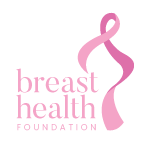Your doctor will discuss the plan for your Breast Cancer treatment throughout your care. Often the plan may change as new information is obtained- such as the results of a sentinel lymph node biopsy or the receptor status of your cancer. Every plan is likely to include surgery and at least one other modality of treatment. There are many different but equally good ways of treating Breast Cancer. Your doctor will discuss with you the way she thinks is best, based on the discussions within the multidisciplinary team and new evidence or new treatments which are always being developed.
The most important person in the discussion is you, or your loved one with cancer, and all the decisions around treatment are ultimately made by you. Doctors can give you the evidence and advice based on years of training and experience, but the patient must decide what is best for her.
